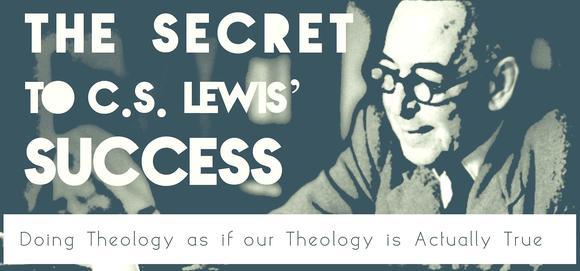
I recently watched a disturbing video. A camera caught the head of a certain political organization; we’ll call him Lucius, attempting to convince a packed auditorium about the reality of moral law. Specifically, Lucius appealed to a real moral law above and beyond culture to argue against a right to homosexual marriage. What struck me most was less of what he said and more how he said it. Lucius taunted the crowd relentlessly, hurling insults like hand grenades. People often argue against moral reality by appealing to moral reality (e.g., there can’t be absolutes because look at out how absolutely wrong the crusades and inquisitions were!). But there is an equal and opposite inconsistency, namely, arguing for moral reality while breaking the very morality we are defending (e.g., real morals like ‘love your neighbor’ exist, you ignoramus!). In other words, Lucius’ problem was that he did not argue his worldview as if his worldview were actually true. No matter what he said, the way in which he said it made it seem like morals like love and respect were not to be taken seriously after all. The medium refuted the message.
A WINSOME RESONANCE
I pray for Lucius and those like him, and I have certainly been guilty of the same self-refuting dissonance between what I say and how I say it. As God moves to mortify the theological bully in my heart and conform me more and more to the image of His Son, I find myself bumping into the same truth: That, as Christians, there ought to be a beautiful consistency, a kind of winsome resonance between what we say and how we say it. In short: we ought to do our theology as if our theology is actually true.
Let me clarify: I believe at my core that Jesus is supremely reasonable, that as “the Truth” and the incarnate Logos, His intellect is something worth mirroring (See my last Good Book Blog post “The Logic of the Logos” here). I also believe that Jesus is supremely passionate, not like those whom C.S. Lewis described as “men without chests,” but having a sizeable and strong-beating heart, full of what Lewis called “just sentiments,” emotions of joy, outrage, sorrow, and compassion that were in perfect sync with reality. I also believe Jesus to be supremely holy, with a unique moral splendor about Him; and supremely loving, enjoying a constant and intimate connection with His Father and painfully committed to maximizing the joy of others; and full of grace, bestowing undeserved favor on those who despised Him; and the Masterful Artist who thought up poetic parables, pink sunsets, different skin colors, the sublime spectrum of glowing gases in a space nebulae, the marble patterns in a human iris, etc. If I believe theologically that Jesus is all of those things (and more!), then the question is this: Do I do my theology reasonably, passionately, morally, relationally, graciously, and artistically? Is there that winsome resonance between what I believe and how I express those beliefs? Do I do my theology as if my theology is actually true?
THE SECRET TO C.S. LEWIS’ SUCCESS
Often times I don’t. I have a hard drive full of theological work that might reflect something of the reasonableness of Jesus, but with all the grace of an inquisitor, the love of a pit bull, and the creativity of a monkey. The extent to which my theology is not reasonably, passionately, morally, relationally, graciously, and artistically expressed is the extent to which, no matter what I’m saying, the way I’m saying it conveys on some primal level that I don’t really appraise those attributes of Jesus with enough worth to imitate them. When there is such dissonance between what is being said and how it’s being said, we appropriately cringe, like when an off-pitch note turns a beautiful song into a sonic trainwreck.
However, when that beautiful harmony hangs between our medium and our message it can trigger not our gag reflex but our tear ducts. I think of Dr. Philip Johnson debating God’s existence with a famous atheist. Every time Dr. Johnson made a point of contention, the atheist pushed a button pulling up a PowerPoint slide of a giant cartoon bull, informing the audience that Dr. Johnson’s point was bull. Did Dr. Johnson return insult for insult? No. Right in the middle of the debate Dr. Johnson paused to pray publically and passionately for his atheist opponent’s sad battle with cancer. Dr. Johnson was not only saying that a God of grace, forgiveness, love, and power exists, he was saying it in a way that was beautifully compatible with that God’s existence. We can hear the same compelling harmony in much of the Puritan literature that is all at once poetic and persuasively reasoned. This harmony between what is said and how it’s said, explains much of the profound and enduring impact of C.S. Lewis. The way Lewis wrote reflected consistently the reason, passion, love, creativity, and grace of the God Lewis was writing about. Lewis’ message shaped his medium, and hence his momentous impact.
YOU’RE WORTH IT!
Like these great theologians we must let the truth of what we’re saying infuse how we say it. Perhaps Johnson, the great Puritans, and Lewis thought very consciously about harmonizing what they said with how they said it. But I think there is something deeper going on too. The harmony of WHAT was being said and HOW it was being said was in large part reached because of WHO was saying it. In other words, there was something irrefutably Christlike in the characters of Johnson, the great Puritans, and Lewis that perhaps even subconsciously permeated how they said what they said. The WHO will, for better or worse, shape the HOW of WHAT we say. This means that character formation and doing good theology cannot be compartmentalized. The more and more we are conformed to the image of Jesus, in whom we find the most praiseworthy integration of reason, passion, holiness, love, grace, and creativity, the better and better we will become in expressing a theology worthy of Him. Putting the cart before the horse, however, seeking first and foremost to write good theology papers, preach good sermons, do good ministry, etc. we quickly become living contradictions to our own theology. The cultivation of Christlike character becomes the essential premise of writing, preaching, and modeling good theology. And, oh, don’t we all need more grace and character-shaping Spirit-power in that department!
Would you join me in praying: Sovereign God, make us more like Jesus in WHO we are so that a beautiful harmony can be heard between WHAT we say and HOW we say it. Make us the kind of theologians who express what we believe about You as if it’s actually true, because it is, and You’re worth it!
 Biola University
Biola University
.jpg)

.jpg)
.jpg)